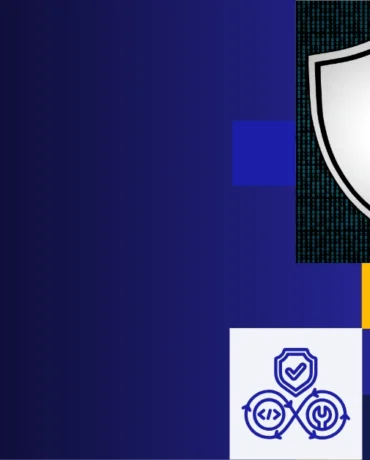Software engineers often work long hours, debugging code and solving complex technical problems. While the job can be rewarding, the constant need to learn new technologies and adapt to changing requirements can quickly lead to exhaustion and a high risk of burnout. Software engineer burnout can sap the joy out of coding and reduce productivity.
Consequently, avoiding software engineer burnout is crucial for not only the well-being of the developers themselves but also the overall success of a project.
As a software engineer, it’s important to recognize the signs of burnout and take action to avoid it. In this article, we’ll explore some of the leading causes of developer burnout and offer practical tips to help rekindle your passion for programming. By making your well-being a priority, you can sustain your enthusiasm for the work you do and continue to thrive in your role. Let’s get started!

Understanding “software engineer burnout”
“Burnout” refers to a state of emotional, physical, and mental exhaustion caused by prolonged and excessive stress, particularly related to work or other activities that require significant effort and dedication.
The concept of “software engineer bủnout” specifically refers to a type of burnout experienced by software developers who work in the technology industry. It is often characterized by a combination of long working hours, tight project deadlines, high pressure to produce quality work, and the need to constantly learn and adapt to new technologies.
It’s crucial to recognize the signs of burnout and take action to avoid it. The burnout can lead to a range of symptoms, including:
- Lack of motivation or interest in work: When burnt out, developers or engineers may find it very difficult to stay concentrated coding or on projects they used to find exciting. There’s a possibility that they become disengaged from their work and start to feel like nothing they do makes a difference, making it hard to code efficiently or solve complex problems
- Constant fatigue: The long hours and high pressure can lead to constant exhaustion, tiredness, and a lack of energy. It’s a struggle to get started on tasks. Additionally, stress from burnout spreads in the body and can cause tension headaches, stomach issues, high blood pressure, and other physical complaints.
- Irritability or cynicism: Burnout often leads to increased irritability, stress, and a cynical or pessimistic outlook. Developers and engineers tend to hold negativity towards their colleagues or clients, leading to conflicts or misunderstandings.
- Insomnia or excessive sleeping: The stress of burnout can lead to changes in sleep habits, including difficulty falling asleep, insomnia, or excessive sleeping.
- Neglecting personal needs: When feeling burnt out, developers may stop engaging in self-care activities like exercising, socializing, and pursuing hobbies that they once enjoyed. Their only priority is getting work done, but with no real motivation or interest.
- Questioning your career: Severe burnout can lead software engineers to question whether they want to remain in the field long-term or make a career change altogether to avoid the stresses of the job.
Why should we stop “software engineer burnout”?
Knowing all these symptoms, it’s essential to take action to prevent it from worsening may affect your health and working status. Addressing engineer burnout is crucial for productivity, health, job satisfaction, creativity, work-life balance, and employee retention. Making burnout prevention a priority leads to more sustainable careers and better outcomes for both individuals and organizations.
- When burnt out, software engineers are less motivated, creative, and able to focus. This leads to decreased productivity, lower quality work, and reduced job performance. Addressing burnout helps revive your energy and passion so you can work efficiently again.
- Prolonged stress from burnout takes a significant toll on your health, increasing the risk of anxiety, depression, heart disease, high blood pressure, and other issues. Making your wellness a priority fights burnout and helps you maintain a healthy body and mind.
- Severe burnout often leads software engineers to quit their jobs in search of less stressful opportunities. High turnover is problematic for employers, teams, and clients. Preventing and reducing burnout helps retain top talent and maintain continuity.
- Burnout sucks the joy and meaning out of a software developer’s job. Taking steps to avoid and alleviate burnout helps you rediscover the rewarding and enjoyable aspects of your work. You’ll feel more motivated and fulfilled in your role.
- Engineers or developers lose their ability to think flexibly and creatively when feeling burnout. It’s difficult to come up with new ideas, solve complex problems in novel ways, or push the envelope. Reducing burnout rekindles your capacity for creativity and innovation.
- A major cause of burnout is neglecting your personal life and responsibilities outside of work. Establishing clear boundaries helps you avoid burnout by making time for the non-work activities that bring you joy and give you a chance to recharge.
Strategies for preventing “ software engineer burnout”
1. Prioritize work-life balance
One of the leading causes of software engineer burnout is the lack of a proper work-life balance. Often, developers find themselves working long hours, even through the night for overtime tasks, which can lead to chronic stress and, eventually, burnout.
While passionate about programming, it is important to not let it become the sole focus of your life. Make time for hobbies, socializing, exercise, and other activities that energize you outside of work. To counteract this, it’s highly recommended to prioritize a healthy work-life balance by setting boundaries and establishing a routine that includes:
- Taking regular breaks throughout the day: It’s just as simple as stepping away from the work desk to take a coffee or a small walk around the place would help.
- Unplugging from work after office hours: Learn to detach yourself from all the tasks at work, turn off notifications to enjoy your quality time with family and friends
- Engaging in hobbies and activities outside of work: Hitting the gym or making time for your hobbies is also ideal to remove all the work burden and do whatever you like to keep you entertained.
- Getting adequate sleep: Having enough sleep will help to boost your energy and make you feel relaxed after a tiring day.

A balanced lifestyle will make you happier and more productive when you are working. If work responsibilities feel overwhelming, talk to your manager about reasonable adjustments to enable a healthier work-life balance.
2. Encourage open communication
Effective communication plays a vital role in preventing software engineer burnout. Encourage your teammates to share their concerns, challenges, and successes openly. Not only will this foster a sense of camaraderie and support, but it will also help identify potential issues before they escalate into full-blown burnout. It’s normal to seek out support from your colleagues and managers
Managers should also be approachable and listen actively to their team members’ needs. Moreover, they should be proactive in addressing any concerns that may arise, such as workload management or the need for additional resources.
3. Foster a culture of learning
Software developers and software engineers thrive in environments that promote continuous learning and development. By cultivating a culture of learning, you’ll empower your team to grow their skills and stay engaged in their work. This can be achieved by:
- Providing access to learning resources, such as online courses and books
- Encouraging knowledge sharing through workshops, presentations, or code reviews
- Supporting attendance at conferences and industry events
4. Recognize and reward accomplishments
Recognition is a powerful motivator and can go a long way. Celebrate the accomplishments of your team members, both big and small, and show your appreciation for their hard work.
This can be as simple as a verbal acknowledgment during a team meeting or a more formal recognition program. Also, consider providing tangible rewards, such as bonuses, promotions, or professional development opportunities.
By implementing these five strategies, you can avoid software engineer burnout and create healthy boundaries and habits. Remember that prevention is always better than trying to recover from burnout after it has already taken hold. By prioritizing your well-being, you’ll contribute to the long-term success of your projects and thrive as a developer.
Key takeaways
Software engineer burnout is a serious risk for individuals in this demanding profession. However, by employing strategies to manage workloads, minimize stress, and maintain a healthy work-life balance, developers can take steps to prevent burnout. Whether it is utilizing project management techniques, taking regular breaks, or making time for hobbies and socializing, being proactive about avoiding burnout will allow software developers to thrive and be more productive and creative in their coding work. By recognizing and acting on the signs of burnout, your tech wizards can have long and successful careers in this important tech field.


